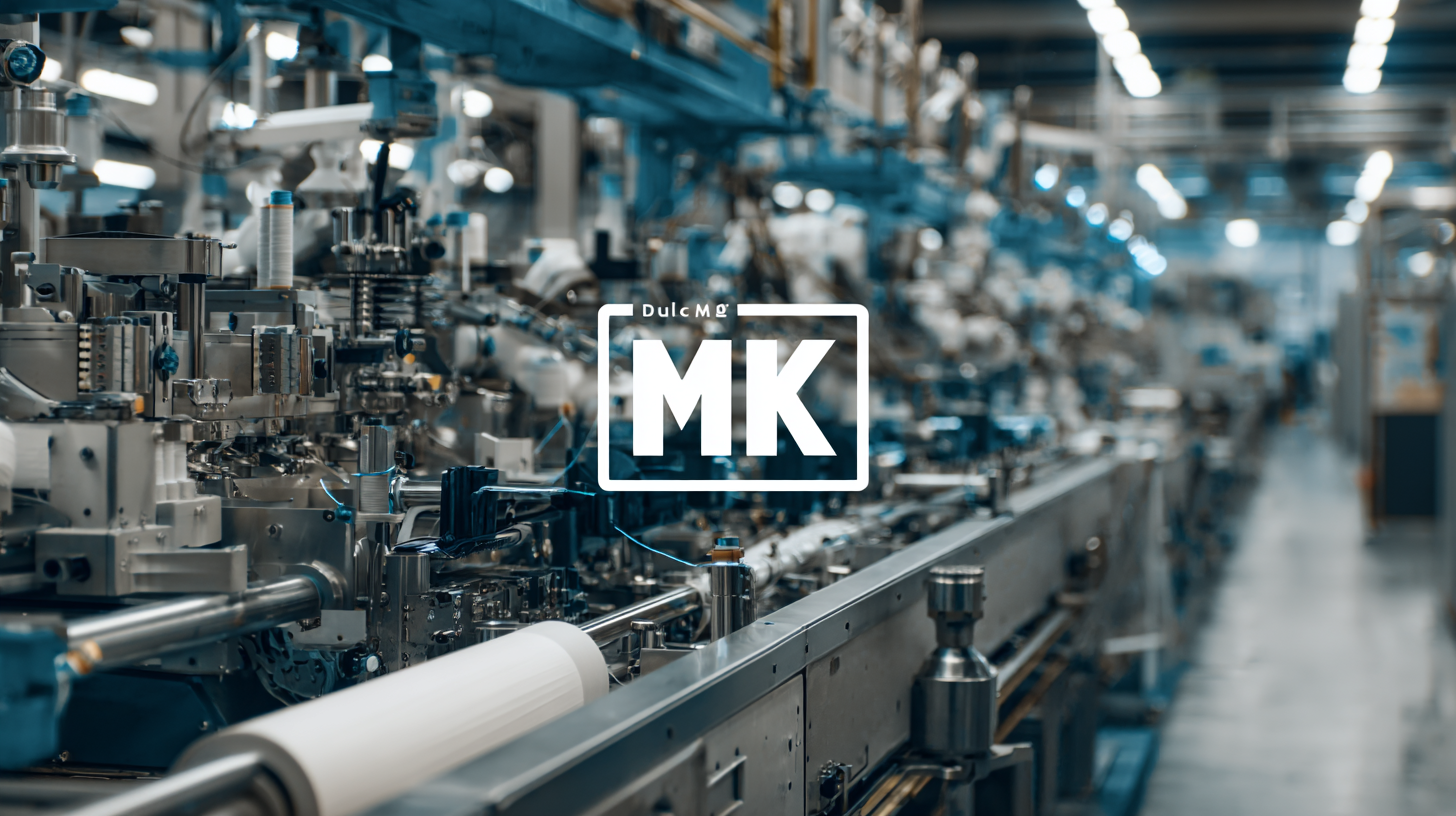
Unlocking Competitive Advantage: The Benefits of Sourcing from the Best Manufacturers Worldwide
In today’s rapidly evolving global marketplace, sourcing from the best manufacturers worldwide has become a crucial strategy for companies aiming to secure a competitive advantage. According to a McKinsey report, businesses that effectively leverage global supply chains can achieve cost reductions of 20-30%, while also benefiting from enhanced product quality and quicker time-to-market. Furthermore, a recent study by Deloitte indicates that 79% of executives believe supplier relationships significantly contribute to a firm’s competitive positioning. As companies strive to optimize their operations and innovate, embracing a digital-first approach to sourcing has proven essential, enabling firms to access top-tier manufacturers who offer superior capabilities and technologies.

This blog will explore the myriad benefits of partnering with these manufacturers, showcasing how intelligent sourcing strategies can unlock new avenues for growth and efficiency.
Understanding After-Sales Service as a Competitive Advantage in Manufacturing
After-sales service is often an overlooked aspect of manufacturing, yet it plays a crucial role in establishing a competitive advantage. A robust after-sales service can elevate a manufacturer’s reputation and customer loyalty, ensuring that clients not only return for repeat business but also recommend the brand to others. This aspect of customer service fosters trust, as clients feel assured that they will receive support long after the initial purchase.
**Tip 1:** Invest in a dedicated customer service team to handle inquiries and issues efficiently. Prompt responses show customers that their satisfaction is a priority, which can lead to increased loyalty.
Moreover, understanding customer feedback is essential for continuous improvement. Manufacturers can leverage after-sales interactions to gather valuable insights that inform product development and service enhancements. This not only addresses current customer needs but also anticipates future demands, solidifying a competitive position in the market.
**Tip 2:** Regularly analyze feedback and implement a systematic approach to resolve recurring issues. This proactive stance enhances the overall customer experience and fosters long-term relationships.
Unlocking Competitive Advantage: The Benefits of Sourcing from the Best Manufacturers Worldwide
| Manufacturer Location | Industry | Production Capacity (Units/Month) | After-Sales Service Rating | Average Response Time (Hours) | Warranty Period (Years) |
|---|---|---|---|---|---|
| China | Electronics | 500,000 | 4.5 | 24 | 2 |
| Germany | Automotive | 200,000 | 4.7 | 12 | 3 |
| Japan | Precision Machinery | 150,000 | 4.6 | 20 | 4 |
| United States | Aerospace | 80,000 | 4.8 | 18 | 5 |
| South Korea | Consumer Electronics | 300,000 | 4.4 | 15 | 2 |
Evaluating Repair Costs: Key Factors to Consider When Sourcing
When evaluating repair costs in the context of sourcing from top manufacturers globally, it's critical to consider the total cost of ownership (TCO). TCO encompasses not just the initial purchase price but also ongoing operational and maintenance expenses. For instance, according to industry reports, up to 70% of a product’s total cost can arise from these ongoing costs, emphasizing the importance of a thorough financial assessment before making sourcing decisions. Companies must account for factors such as repair frequency, warranty terms, and parts availability when evaluating different manufacturers.

Additionally, sourcing practices must align with sustainability initiatives, particularly in high-growth sectors like electric vehicles (EVs). The modern supply chain is increasingly focusing on the circular economy, where manufacturers are encouraged to reuse materials and minimize waste. This approach not only influences sourcing decisions but can also significantly reduce repair costs by leveraging reclaimed materials and optimizing resource use. Research indicates that incorporating circular principles can decrease acquisition costs by up to 50%, reinforcing the need for businesses to integrate sustainability into their sourcing strategies.
How to Choose Manufacturers with Superior After-Sales Support
When selecting manufacturers to enhance your competitive advantage, the significance of after-sales support cannot be overstated. Superior after-sales service is a critical component that distinguishes top manufacturers from the crowd. It ensures that any issues or concerns post-purchase are addressed promptly, fostering a strong relationship between the manufacturer and your business. Companies that provide robust training, dedicated support lines, and warranty services not only alleviate stress but also empower your staff to maximize the product's potential.
To find manufacturers with exemplary after-sales support, prioritize those that offer comprehensive service packages. Look for firms that provide clear communication channels and proactive follow-up measures. Investigating reviews and case studies revealing how manufacturers handle customer service can provide valuable insights. Additionally, establishing a direct relationship with potential manufacturers, and discussing your specific needs and concerns, can lead to better support solutions tailored for your business. Making after-sales service a priority in your selection process will not only enhance satisfaction but also ensure that your partnership leads to long-term success.
Strategies for Enhancing Customer Satisfaction Through Efficient Repairs
Efficient repairs are vital for enhancing customer satisfaction, which can significantly influence a company's competitive advantage. According to a report from the American Customer Satisfaction Index, businesses that prioritize fast and effective repair services experience a 20% increase in customer retention rates. This highlights the importance of sourcing from top manufacturers who not only deliver high-quality products but also offer reliable support for maintenance and repairs.

To optimize repair processes, companies should implement a streamlined communication system with manufacturers. This ensures that parts replacement and service requests are handled quickly and efficiently. Additionally, businesses can utilize data analytics to track repair efficiency, identifying potential bottlenecks in the service process.
Tips:
- Invest in Training: Equip your technicians with the latest tools and knowledge to enhance repair speed and quality.
- Use Quality Parts: Always source replacement components from reputable manufacturers to ensure longevity and diminish the frequency of repairs.
- Feedback Loops: Establish channels for customer feedback on repair services, allowing you to continuously improve and adapt to customer needs.
Exploring the Long-Term Financial Benefits of Partnering with Top Manufacturers
Partnering with top manufacturers worldwide yields significant long-term financial benefits that can drive a business's growth and sustainability. Established manufacturers often have extensive experience and expertise within their industries, allowing them to produce high-quality products at competitive prices. This can lead to lower production costs and higher margins for businesses. By sourcing from reputable manufacturers, companies can also reduce their expenses related to defects or returns, as these manufacturers tend to adhere to rigorous quality control standards.
Additionally, strong relationships with leading manufacturers can pave the way for innovative product development. Collaborating with the best in the business not only enhances the quality of offerings, but also drives efficiencies in the supply chain. Access to advanced technologies and practices boosts productivity and can significantly shorten time-to-market for new products. Ultimately, investing in partnerships with top manufacturers not only strengthens a company's competitive position but also lays a foundation for sustained profitability and growth in an ever-evolving market landscape.
